
Ngoa-Ekelle: The Beating Heart of Yaoundé
Ngoa-Ekelle is a vibrant and dynamic neighbourhood located in the heart of Yaoundé, Cameroon’s bustling capital. Known for its energetic streets, diverse cuisine, and cultural landmarks, this area offers a unique blend of modernity and tradition that is sure to captivate any visitor. At the center of Ngoa-Ekelle lies the University of Yaoundé I, one of the most prestigious educational institutions in the country. The presence of the university brings a youthful and intellectual vibe to the neighbourhood, making it a hub for students, academics, and young professionals. Walking through the campus, you’ll encounter beautiful green spaces, historic buildings, and a variety of cultural events that reflect the rich heritage of Cameroon. Food lovers will find themselves in paradise in Ngoa-Ekelle. The neighbourhood is home to a plethora of restaurants and street food vendors offering delicious Cameroonian dishes. Don’t miss the chance to try local favorites such as Ndolé (a bitterleaf stew with nuts and fish or meat), Eru (a vegetable soup), and freshly grilled fish. The bustling markets and food stalls provide a sensory overload of sights, sounds, and smells that are quintessentially African. Ngoa-Ekelle also boasts several points of interest for those keen on history and culture. The National Museum of Yaoundé, located nearby, offers a deep dive into the country’s history and traditional arts. Additionally, the neighborhood is known for its vibrant nightlife, with numerous bars, clubs, and live music venues where you can dance the night away to the rhythms of Makossa and Bikutsi music.
Local tips in Ngoa-Ekelle
- Visit the University of Yaoundé I campus for a blend of history, culture, and beautiful green spaces.
- Try local street food dishes like Ndolé and Eru for an authentic taste of Cameroonian cuisine.
- Explore the National Museum of Yaoundé to learn about Cameroon’s rich history and cultural heritage.
- Enjoy the nightlife with local music at nearby bars and clubs for an unforgettable experience.
Ngoa-Ekelle: The Beating Heart of Yaoundé
Ngoa-Ekelle is a vibrant and dynamic neighbourhood located in the heart of Yaoundé, Cameroon’s bustling capital. Known for its energetic streets, diverse cuisine, and cultural landmarks, this area offers a unique blend of modernity and tradition that is sure to captivate any visitor. At the center of Ngoa-Ekelle lies the University of Yaoundé I, one of the most prestigious educational institutions in the country. The presence of the university brings a youthful and intellectual vibe to the neighbourhood, making it a hub for students, academics, and young professionals. Walking through the campus, you’ll encounter beautiful green spaces, historic buildings, and a variety of cultural events that reflect the rich heritage of Cameroon. Food lovers will find themselves in paradise in Ngoa-Ekelle. The neighbourhood is home to a plethora of restaurants and street food vendors offering delicious Cameroonian dishes. Don’t miss the chance to try local favorites such as Ndolé (a bitterleaf stew with nuts and fish or meat), Eru (a vegetable soup), and freshly grilled fish. The bustling markets and food stalls provide a sensory overload of sights, sounds, and smells that are quintessentially African. Ngoa-Ekelle also boasts several points of interest for those keen on history and culture. The National Museum of Yaoundé, located nearby, offers a deep dive into the country’s history and traditional arts. Additionally, the neighborhood is known for its vibrant nightlife, with numerous bars, clubs, and live music venues where you can dance the night away to the rhythms of Makossa and Bikutsi music.
Unmissable attractions to see
Basilica of Mary Queen of Apostles
Explore the captivating Basilica of Mary Queen of Apostles in Yaoundé, Cameroon, a stunning architectural gem and spiritual haven.
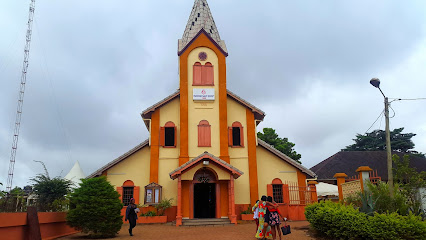
Municipal Lake
Discover the beauty and tranquility of Municipal Lake in Yaoundé, a perfect retreat for nature lovers and adventure seekers alike.
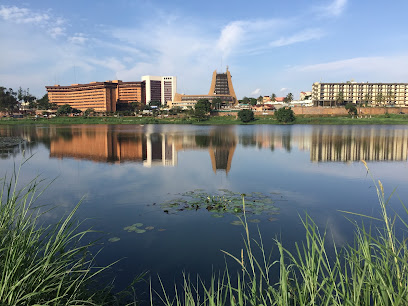
Point d'observation
Experience the breathtaking vistas of Yaoundé from Point d'observation, a must-visit attraction showcasing panoramic views and local culture.

Le Paix Hill
Experience breathtaking views and serene nature at Le Paix Hill, a tranquil escape in the heart of Yaoundé, Cameroon.

Miséricorde divine guide touristique
Discover Miséricorde Divine in Yaoundé – a tranquil tourist attraction with stunning architecture and a peaceful atmosphere for reflection.

Essential places to dine
En Marche Restaurant
Experience authentic Cameroonian cuisine at En Marche Restaurant in Yaoundé – where every dish tells a story.
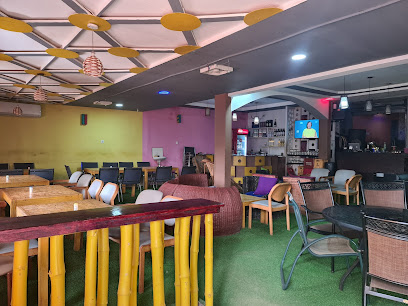
Divine Favour restaurant
Experience authentic Cameroonian cuisine at Divine Favour Restaurant in Yaoundé – where every meal tells a story.
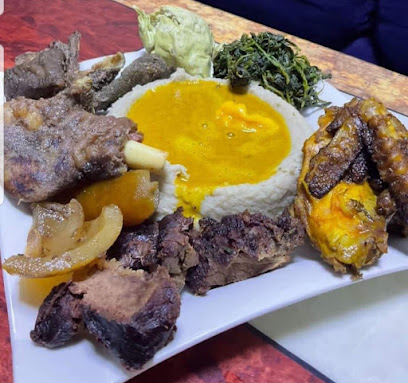
A LA TABLE DU ROI, Efoulan Yaoundé
Experience authentic Cameroonian flavors at A La Table du Roi in Yaoundé - a must-visit restaurant for every traveler seeking local cuisine.
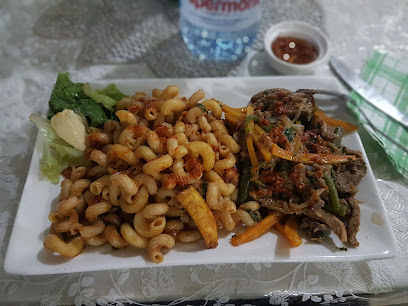
Restaurant Alegria
Experience authentic Cameroonian cuisine at Restaurant Alegria in Yaoundé - where every meal tells a story.

Restaurant Solamel
Experience authentic Cameroonian cuisine at Restaurant Solamel in Yaoundé – where flavor meets hospitality.
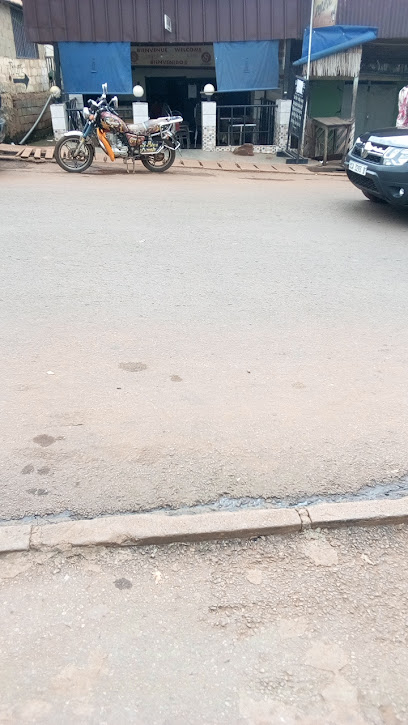
RESTAURANT POINT SÛR
Savor authentic African cuisine in Yaoundé at Restaurant Point Sûr – where every dish tells a story.
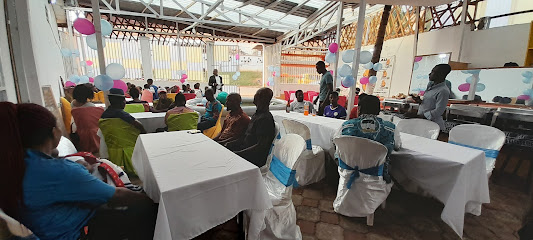
Heavenly taste restaurant
Experience authentic Cameroonian cuisine at Heavenly Taste Restaurant in Yaoundé - where every dish tells a story.
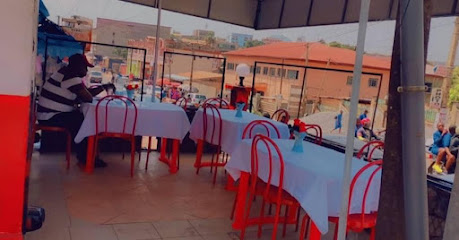
Restaurant chez Ma'a Flo
Experience authentic Cameroonian flavors at Restaurant chez Ma'a Flo in Yaoundé - a must-visit for food lovers!
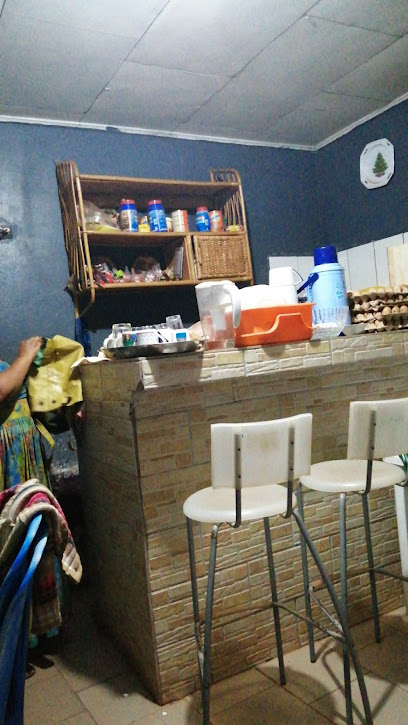
La boutique
Discover La Boutique in Yaoundé: A family-friendly restaurant offering delicious local cuisine and a warm atmosphere perfect for all ages.

CHEZ CHARLOTTE RESTO
Discover the flavors of Cameroon at Chez Charlotte Resto in Yaoundé - where culinary tradition meets modern dining.

Markets, malls and hidden boutiques
Behichabe Shopping
Shop sustainably and discover unique treasures at Behichabe Shopping, the premier consignment shop in Yaoundé, Cameroon.
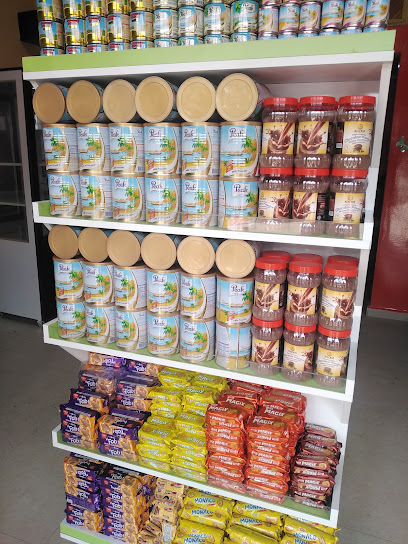
Cité U Ngoa ekele
Discover the latest in technology at Cité U Ngoa Ekele, the premier electronics store in Yaoundé, offering a unique shopping experience for tech enthusiasts.
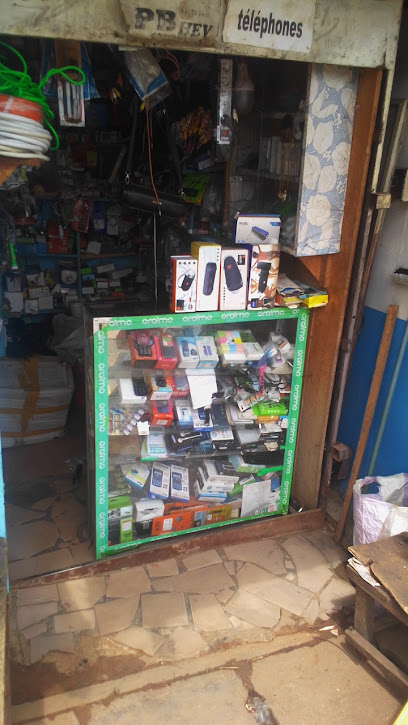
ETHNICGENERATION
Explore the vibrant culture of Cameroon at ETHNICGENERATION, your destination for unique gifts and local treasures in Yaoundé.

SHOPPING PLUS OFFICIEL
Explore Shopping Plus Officiel in Yaoundé for trendy fashion accessories that blend local style with contemporary elegance.
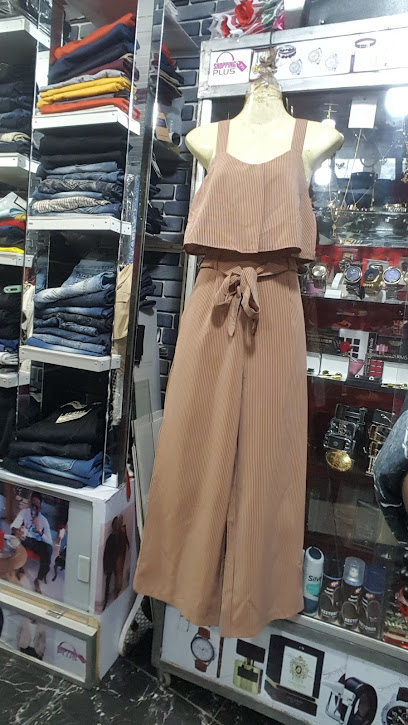
LYDIE SHOPPING OFFICIEL
Explore Lydie Shopping Officiel in Yaoundé for unique fashion accessories that elevate your style while experiencing local fashion culture.
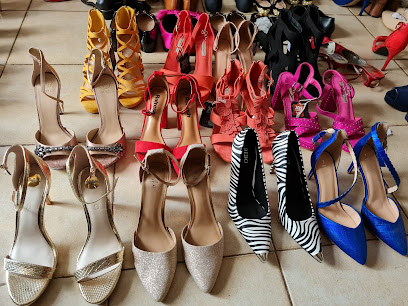
EWOLI
Discover unique fashion accessories that capture the essence of Cameroon at EWOLI in Yaoundé, a must-visit for stylish travelers.

Eding's Secret Shop
Explore Eding's Secret Shop in Yaoundé for unique gifts and authentic Cameroonian crafts that celebrate the local culture and artistry.
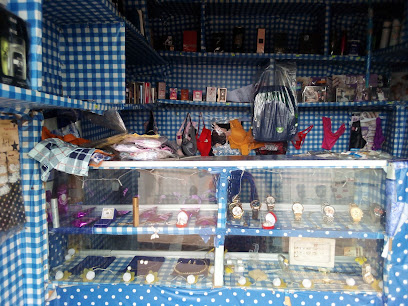
onjeans market-gift
Discover Onjeans Market in Yaoundé: A treasure trove of unique gifts and local crafts that celebrate Cameroonian culture.

KHEAM HOUSE OFFICIEL
Explore KHEAM HOUSE OFFICIEL in Yaoundé for unique fashion accessories that celebrate Cameroon’s rich cultural heritage.
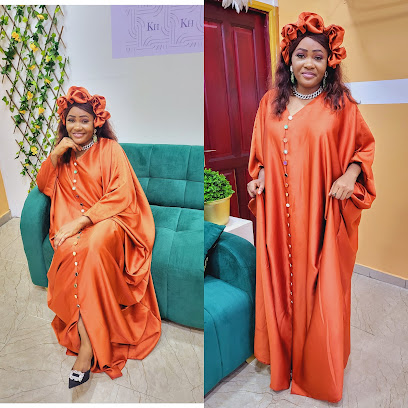
JOSY AFRICAN SHOPPING
Discover the vibrant fashion accessories at Josy African Shopping in Yaoundé, where local craftsmanship meets unique style.
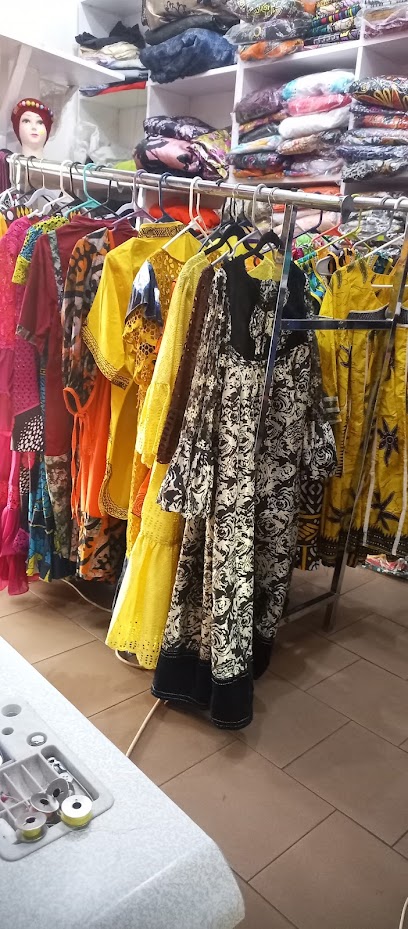
Essential bars & hidden hideouts
Lounge Cafe, Yaoundé
Experience the vibrant energy of Yaoundé at Lounge Cafe, where relaxation meets local culture in a chic bar atmosphere.
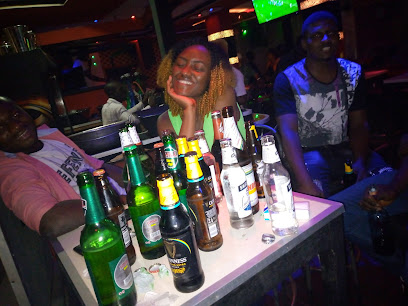
Cloud9 rooftop bar and grill
Discover the vibrant atmosphere of Cloud9 Rooftop Bar and Grill in Yaoundé, where stunning views meet delicious grilled dishes and refreshing drinks.
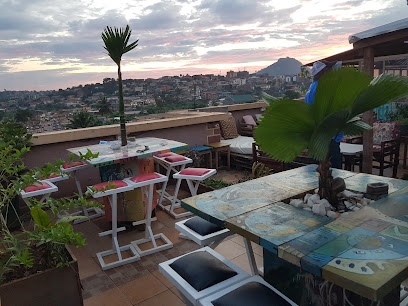
Facebook Snack Bar, Nsam, Yaoundé
Discover the lively ambiance and local flavors at Facebook Snack Bar, a must-visit bar in the heart of Nsam, Yaoundé.
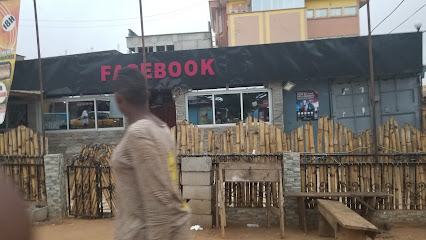
Sous Manguier Bar
Experience the vibrant nightlife of Yaoundé at Sous Manguier Bar, where local culture meets a welcoming atmosphere and refreshing drinks.
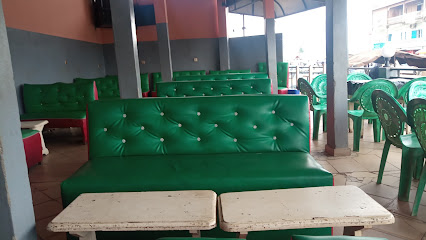
Bistrot LE GOURMET
Discover the vibrant atmosphere of Bistrot LE GOURMET in Yaoundé, a cozy bar offering delightful drinks and local culture.
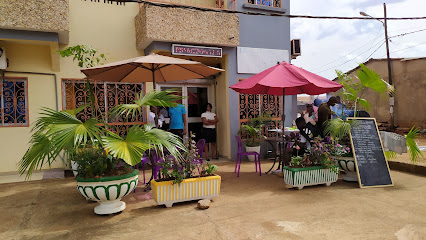
avocatier bar
Experience the vibrant nightlife of Yaoundé at Avocatier Bar, where local flavors and lively ambiance meet.
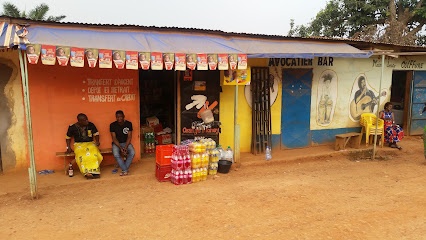
Select
Experience the vibrant nightlife at Select Bar in Yaoundé, a perfect blend of local culture and refreshing drinks.

1xguide
Discover the lively ambiance and cultural charm of 1xguide, a top pub in Yaoundé, perfect for unwinding and experiencing local nightlife.

MG-EL-TCHADO
Discover the lively pub scene at MG-EL-TCHADO, where vibrant atmosphere and local culture collide in the heart of Yaoundé.

Ngona
Experience the lively nightlife at Ngona Bar in Yaoundé, where local culture meets vibrant energy for an unforgettable outing.

Local Phrases
-
- HelloMbolo
[m-boh-loh] - GoodbyeEse
[eh-seh] - YesEe
[eh] - NoAa
[ah] - Please/You're welcomeS'il vous plaît
[seel voo pleh] - Thank youMerci
[mehr-see] - Excuse me/SorryPardon
[pahr-dohn] - How are you?Comment ça va?
[koh-moh sah vah] - Fine. And you?Bien. Et toi?
[byen. ay twah] - Do you speak English?Parlez-vous anglais?
[par-lay voo ahn-glay] - I don't understandJe ne comprends pas
[zhuh nuh kohm-prahnd pah]
- HelloMbolo
-
- I'd like to see the menu, pleaseJe voudrais voir le menu, s'il vous plaît
[zhuh voo-dreh vwar luh muh-nyu, seel voo pleh] - I don't eat meatJe ne mange pas de viande
[zhuh nuh mahnj pah duh vyand] - Cheers!Santé!
[sahn-tay] - I would like to pay, pleaseJe voudrais payer, s'il vous plaît
[zhuh voo-dreh pay-yay, seel voo pleh]
- I'd like to see the menu, pleaseJe voudrais voir le menu, s'il vous plaît
-
- Help!Au secours!
[oh suh-koor] - Go away!Allez-vous en!
[ah-leh voo zahn] - Call the Police!Appelez la police!
[ah-peh-lay lah poh-lees] - Call a doctor!Appelez un médecin!
[ah-peh-lay uh may-duh-sahn] - I'm lostJe suis perdu
[zhuh swee pair-doo] - I'm illJe suis malade
[zhuh swee mah-lahd]
- Help!Au secours!
-
- I'd like to buy...Je voudrais acheter...
[zhuh voo-dreh ah-shet-ay] - I'm just lookingJe regarde juste
[zhuh ruh-gahrd zhuhst] - How much is it?Combien ça coûte?
[kohm-byen sah koot] - That's too expensiveC'est trop cher
[say troh shay] - Can you lower the price?Pouvez-vous baisser le prix?
[poo-veh voo beh-say luh pree]
- I'd like to buy...Je voudrais acheter...
-
- What time is it?Quelle heure est-il?
[kell uhr eh-teel] - It's one o'clockIl est une heure
[eel eh oon uhr] - Half past (10)Dix et demie
[dees ay duh-mee] - MorningMatin
[mah-tahn] - AfternoonAprès-midi
[ah-pray mee-dee] - EveningSoir
[swahr] - YesterdayHier
[yehr] - TodayAujourd'hui
[oh-zhoor-dwee] - TomorrowDemain
[duh-mahn] - 1Un
[uhn] - 2Deux
[duh] - 3Trois
[twah] - 4Quatre
[kah-truh] - 5Cinq
[sank] - 6Six
[sees] - 7Sept
[sept] - 8Huit
[wee-eet] - 9Neuf
[nuhf] - 10Dix
[dees]
- What time is it?Quelle heure est-il?
-
- Where's a/the...?Où est...
[oo ay] - What's the address?Quelle est l'adresse?
[kell ay lah-dress] - Can you show me (on the map)?Pouvez-vous me montrer (sur la carte)?
[poo-veh voo muh mohn-tray (soor lah kart)] - When's the next (bus)?Quand est le prochain (bus)?
[kahn eh luh proh-shahn (boos)] - A ticket (to ....)Un billet (pour ...)
[uhn bee-yay (poor)]
- Where's a/the...?Où est...
History of Ngoa-Ekelle
-
Before the arrival of European powers, the area now known as Ngoa-Ekelle was part of the rich cultural tapestry of the Beti people, who inhabited the region. Their traditional practices, art, and governance structures established a foundation that persists in the local culture today.
-
During the late 19th and early 20th centuries, Cameroon became a German colony, and Yaoundé was chosen as an administrative center. The development of infrastructure in Ngoa-Ekelle, including roads and schools, was significantly influenced by the colonial agenda, which aimed to integrate the area into the broader colonial economy.
-
Following Cameroon’s independence in 1960, Ngoa-Ekelle experienced rapid urbanization as people migrated to Yaoundé for opportunities. This influx of population contributed to the neighborhood's growth and the blending of traditional and modern lifestyles, evident in its architecture and local markets.
-
Ngoa-Ekelle is known for its vibrant cultural festivals that celebrate the rich heritage of the Beti people. Events such as the Ngondo Festival showcase traditional music, dance, and crafts, offering a glimpse into the historical significance of the community within Yaoundé.
-
In recent decades, Ngoa-Ekelle has faced challenges typical of urban neighborhoods, including infrastructure strain and social issues. However, community initiatives and local governance efforts have emerged to address these challenges, demonstrating the resilience of its residents and their commitment to preserving their cultural identity.
Ngoa-Ekelle Essentials
-
Ngoa-Ekelle is accessible from various neighborhoods in Yaoundé. You can take a taxi or a motorcycle taxi (benskin) from the city center, which typically takes around 15-30 minutes depending on traffic. Public buses also serve the area, with several routes connecting to Ngoa-Ekelle from major hubs like Mfoundi and Bastos. For those coming from the Yaoundé Nsimalen International Airport, taxis are readily available and the journey takes about 30-45 minutes.
-
Ngoa-Ekelle is best explored on foot, as many local attractions are within walking distance. Public transport options include local buses and shared taxis that can take you to other parts of the city. Motorcycle taxis are a popular choice for quicker, more flexible travel. For those who prefer cycling, renting a bicycle is an option, although the traffic can be quite challenging.
-
While Ngoa-Ekelle is relatively safe for tourists, it is advisable to remain cautious, especially at night. Areas around the central market and deserted streets after dark can be risky. Petty crimes such as pickpocketing can occur, so keep your belongings secure and avoid displaying valuables. It's wise to stay vigilant and stick to well-lit, populated areas.
-
In case of emergency, dial 112 for police assistance or 118 for medical emergencies. Familiarize yourself with the location of the nearest hospital, which is Hôpital Général de Yaoundé. It is also advisable to have travel insurance that covers health emergencies. For minor health issues, local pharmacies can provide basic treatments and medications.
-
Fashion: Do dress modestly, especially when visiting local markets or religious sites. Avoid overly revealing clothing. Religion: Do respect local customs and practices, especially around places of worship. Public Transport: Do give up your seat to the elderly and pregnant women. Don't eat or drink on public transport. Greetings: Do greet locals with a handshake and a smile. Avoid using overly familiar terms unless you're invited to. Eating & Drinking: Do try local dishes and accept invitations to share meals. Don't refuse food or drink offered to you as it might be seen as rude.
-
To experience Ngoa-Ekelle like a local, visit the local markets where you can find fresh produce and handmade crafts. Engage with vendors and locals to learn about their culture and daily life. Also, don’t miss out on trying street food—it's a great way to enjoy authentic flavors. If you're looking for a unique experience, attend a local music or dance event if available, as this showcases the vibrant culture of the area.
Nearby Cities to Ngoa-Ekelle
-
Things To Do in Bafia
-
Things To Do in Ebolowa
-
Things To Do in Edea
-
Things To Do in Douala
-
Things To Do in Bitam
-
Things To Do in Kribi
-
Things To Do in Nkongsamba
-
Things To Do in Bafoussam
-
Things To Do in Foumban
-
Things To Do in Tiko
-
Things To Do in Dschang
-
Things To Do in Mbouda
-
Things To Do in Buea
-
Things To Do in Bertoua
-
Things To Do in Limbe






